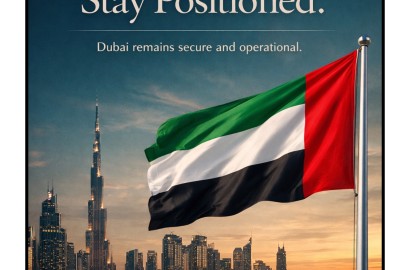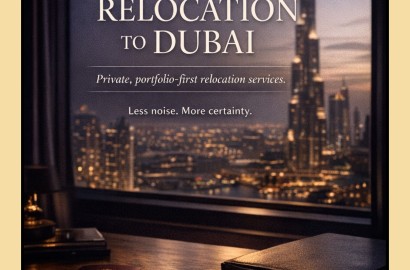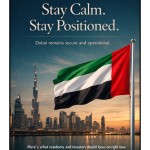Why Diversification Matters in Dubai Real Estate

Dubai’s market is unique: it has high global demand, fast development cycles, and strong government-backed regulation. But just like any market, different property types perform differently under changing conditions.

Advantages of diversification include:
• Risk reduction : spreads exposure across multiple sectors.
• Cash flow balance : mix of stable rental yields + appreciation.
• Liquidity flexibility : some assets can be resold faster than others.
• Future-proofing : portfolio adapts to tourism cycles, population growth, and business demand.

7 Proven Strategies to Diversify Your Dubai Real Estate Portfolio
Here’s a comprehensive comparison table showing each strategy, ROI potential, risk level, and ideal investor profile:
Strategy | Definition | Avg. ROI Range | Risk Level | Typical Holding Period | Demand Drivers | Best For |
Luxury Properties | Prime villas/apartments in Palm Jumeirah, Downtown, Emirates Hills | 6–10% yearly | Medium (market sensitive) | 5–10 years | Global HNWI demand, prestige | High-net-worth individuals |
Off-Plan Investments | Buy at pre-launch/development stage | 15–35% (at handover) | Medium-High (developer/timeline risk) | 2–4 years | Flexible payment plans, capital growth | Long-term growth investors |
Rental Apartments | Ready units leased yearly or short-term | 7–12% (short-term higher) | Low-Medium | 1–5 years | Tourism growth, expat population | Cash-flow investors |
Commercial Units | Offices, retail shops, warehouses | 8–15% | Medium | 5–8 years | Business hub growth, SME demand | Corporate & stable investors |
Affordable Housing | Studios/1BR in JVC, Dubai South, IMPZ | 6–10% | Low | 2–5 years | Growing middle-income tenants | First-time & budget investors |
Vacation Homes | Short-let villas & apartments | 10–18% | Medium (seasonal) | 1–3 years | Tourism + Airbnb demand | Investors tapping tourism |
REITs & Fractional Ownership | Shares in property funds/platforms | 5–8% | Low | Flexible (liquid) | Passive investing trend | Investors with smaller capital |
Emerging Trends to Watch in Dubai (2025)
• Branded Residences : Armani, Ritz-Carlton, and other luxury names attracting global investors.
• Eco-Friendly & Green Projects : LEED-certified, solar-ready, and water-efficient buildings are in demand.
• Short-Term Rental Surge : Driven by Expo legacy, tourism, and global events.
• Flexible Payment Plans : Developers offering 5–10 year post-handover options fueling off-plan Growth
Building the Right Portfolio Mix
The strongest portfolios combine:
1. Luxury or commercial units for long-term capital appreciation.
2. Rental apartments or vacation homes for steady monthly cash flow.
3. Off-plan or affordable housing for higher growth potential.
4. REITs/fractional ownership for low-risk, liquid diversification.
Dubai offers opportunities at every level—from luxury villas to budget apartments. But the real edge comes when you strategically diversify your portfolio , ensuring that one asset class cushions the risks of another.
✅ If you want to explore how to build a custom portfolio tailored to your goals , let’s talk.
📌 Free consultation today:
• 📱 WhatsApp: +971585259680
• 💌 Email: info@dubairealestateprincess.com
Your next smart move could reshape your wealth for years to come.
Related posts:
Regional tension has raised questions among residents and investors. Here’s a structured, calm assessment of Dubai’s stability and the practical safety measures every UAE resident should follow.
AI-powered relocation services are changing how global buyers, founders, and families land in Dubai, not just by “finding a home,” but by reducing uncertainty across visas, schooling, lifestyle mapping, and long-term property strategy. Used correctly, AI becomes a private decision...
Categories
- 🏡 Nad Al Sheba Living
- Business Bay / Downtown Dubai
- ⛳ Jumeirah Golf Estates Living
- 💧 District One Living
- 🌳 Dubai Hills Living
- 🌊 Palm Jumeirah Living
- Testimonials & Success Stories
- Community Events & Sustainability
- Eco-Luxury Lifestyle Blog
- Luxury Rental Market
- Dubai’s Green Communities
- Property Management & Sustainability
- Relocation to Dubai
- Off-Plan Developments
- Investment Opportunities
- 🌿 Al Barari Living
- Buyer Resources
- Dubai Real Estate Princess
- Off-Market Exclusives
- Eco-Luxury Properties
- Sustainable Investing
- Luxury Living in Dubai
- Sellers’ Guide
- Dubai Market Insights
- House architecture
- News


 UAE Tension and Dubai Stability: Safety Measures & Smart Investor Positioning
UAE Tension and Dubai Stability: Safety Measures & Smart Investor Positioning
 AI-Powered Relocation Services in Dubai Dubai relocation concierge, HNW relocation Dubai, Dubai property strategy, relocation risk checklist, private
AI-Powered Relocation Services in Dubai Dubai relocation concierge, HNW relocation Dubai, Dubai property strategy, relocation risk checklist, private
 Why It’s Profitable to Buy a Branded Dubai Residence or Penthouse in 2026
Why It’s Profitable to Buy a Branded Dubai Residence or Penthouse in 2026
 How Dubai Becoming the First Government to Accept Bitcoin & Crypto for Tax and Fee Payments Changes the Game for Real Estate Investors
How Dubai Becoming the First Government to Accept Bitcoin & Crypto for Tax and Fee Payments Changes the Game for Real Estate Investors
 🌿 The Cape at Al Barari: The Final Chapter of Dubai’s Most Iconic Nature Community (Full Investor Guide)
🌿 The Cape at Al Barari: The Final Chapter of Dubai’s Most Iconic Nature Community (Full Investor Guide)